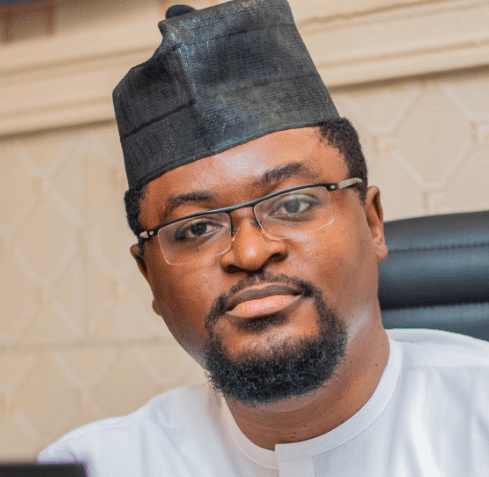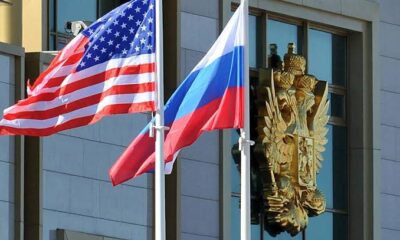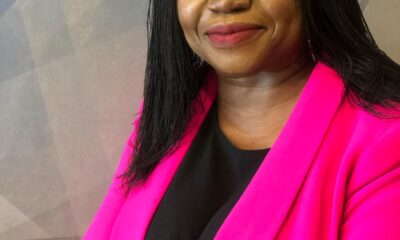Political Issues
President Tinubu: A Year Of Healing And Unifying Nigeria, By Fredrick Nwabufo
The President has maintained an accustomed patriotic, graceful, and expansive mien. In his public statements, mostly done extempore, he has always faithfully affirmed his commitment to Nigeria’s unity.
Published
2 years agoon

In fact, the incorporeal constituents of leadership are so important that citizens may not see utility in improved economic well-being and massive industrial transformation, if the leadership does not manage the delicate confluences of social and psychological needs.
In some of my treatises as a columnist years ago, I had written that beyond other rudimentary ingredients and supplements of leadership, Nigeria needs a leader who is a healer-in-chief and a unifier by example. A leader who has the proclivity and deliberateness to bring the nation together.
I am most delighted and proud to say Nigeria has found its healer-in-chief; its unifier by example, and consoler-in-chief in President Bola Tinubu. He is the President for all Nigerians.
It has been President Tinubu’s one year of healing and unifying Nigeria. In his inaugural speech on May 29, 2023, the President made a declaration that has become a defining motif of his administration.
He said: ‘’Our administration shall govern on your behalf but never rule over you. We shall consult and dialogue but never dictate. We shall reach out to all but never put down a single person for holding views contrary to our own. We are here to further mend and heal this nation, not tear, and injure it.’’
And true to his promise, President Tinubu has been listening and reaching out to Nigerians of diverse complexions and artificial partitions, as well as mending and healing the nation.
Healing and unifying the nation, how, you might ask? By personal example; in words and in deeds. There is no greater purpose and value to leadership than personal example. The place of leadership in forging bonds of communality is the place of purpose and deliberateness. Leadership must be deliberate in managing diversity and in fostering kinship among variegated people. Nation building cannot be left to chance or to a whim. There must be purposive plans and actions towards uniting the people. And these plans and actions, President Tinubu has been successful at carrying through in the past one year.
The President has maintained an accustomed patriotic, graceful, and expansive mien. In his public statements, mostly done extempore, he has always faithfully affirmed his commitment to Nigeria’s unity.
In one of his many noble articulations, he said: “I am irrevocably committed to the unity of Nigeria and constitutional democracy. Constitutional democracy has been reflected greatly here since we assumed office.’’
Also to consider are the broad and far-reaching projects and programmes which are in themselves totems of unity – with all Nigerians, irrespective of class or creed, as beneficiaries and potential beneficiaries.
The approval of the Renewed Hope Infrastructure Development Fund to facilitate effective infrastructure development across the pivotal areas of agriculture, transportation, ports, aviation, energy, healthcare, and education, with salient projects across the country is a further affirmation of statesmanship and leadership.
The ongoing epochal Lagos-Calabar Coastal Road, with its attendant immense economic and social benefits to many states within and outside that corridor; the Sokoto-Badagry Road project, and the completed Port Harcourt to Aba stretch of the Port Harcourt to Maiduguri narrow-gauge rail, among other key developments across the nation, assert the all-encompassing and genuine intentionality to nation building. No Nigerian is left behind.
Within the first year, the President also approved the upgrade of key health infrastructure and equipment across all six geo-political zones in line with his administration’s vision of overhauling the health and social welfare sector for enhanced service delivery to all Nigerians.
The following teaching hospitals across the geo-political zones were marked for the establishment of oncology and nuclear medicine centres as part of the President’s bid to ensure that top-tier cancer diagnosis and care is accessible across the country: (1) University of Benin Teaching Hospital, (2) Ahmadu Bello University Teaching Hospital, (3) University of Nigeria (Nsukka) Teaching Hospital, (4) Federal Teaching Hospital, Katsina, (5) University of Jos Teaching Hospital, and (6) Lagos University Teaching Hospital.
Ten other hospitals across all the geo-political zones were also pencilled for critical healthcare-service expansion projects across the fields of radiology, clinical pathology, medical and radiation oncology, and cardiac catheterization.
The take-off of the first phase of the Consumer Credit Scheme, which is essentially a mitochondrion enabling citizens to improve their quality of life by accessing goods and services upfront, paying responsibly over time, and by the same token bolstering local industry and stimulating job creation is another social cohesion sealant – with all classes of working Nigerians as beneficiaries.
In summary, the establishment of the Nigerian Education Loan Fund (NELFUND) with the pre-eminent vision of safeguarding Nigeria’s future by ensuring that all Nigerian students and youths, regardless of their social, ethnic, or religious backgrounds, have access to sustainable higher education and functional skills, further accents the President’s fidelity to building a stable, strong, united, peaceful, and progressive nation.
One thing is certain: Citizens agree that they have a President for all Nigerians.
Fredrick Nwabufo is Senior Special Assistant to the President on Public Engagement
Opinion Nigeria is a practical online community where both local and international authors through their opinion pieces, address today’s topical issues. In Opinion Nigeria, we believe in the right to freedom of opinion and expression. We believe that people should be free to express their opinion without interference from anyone especially the government.

Trending Articles


Washington and Moscow to Negotiate Peace for Ukraine -By Kestér Kenn Klomegâh
The two countries' teams have not yet held serious discussions but Russia and the US maintain contact, "including over the...


Another Look At Donald Trump’s Threat To Nigeria -By Hajia Hadiza Mohammed
We have reason to welcome American intervention if that is what will bring security and sanity in the land. America...


Oil and the Global Economy: Why Price Changes Matter More Than Ever
Oil still plays an enormously important role in the global economy. Read our blog to learn why oil price changes...


Degrees Without Intelligence: Nigeria’s Leadership Crisis in Protection and Poor Judgment -By Prof John Egbeazien Oshodi
Given the scale of killings, kidnappings, church attacks, school abductions, and rural massacres in Nigeria, therapeutic common sense — and...


The Reality of Gender-Based-Violence (GBV) in Sub-Saharan Africa -By Prof. Uche Ofodile
The 2025 African Union Convention on Ending Violence Against Women and Girls defines GBV widely to include physical, emotional, psychological,...